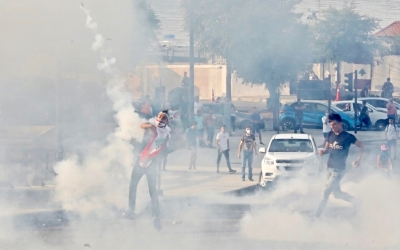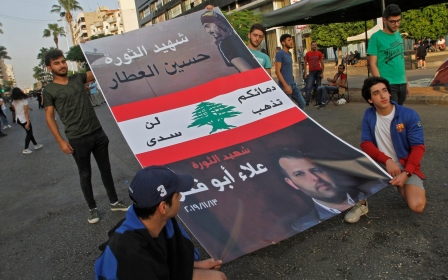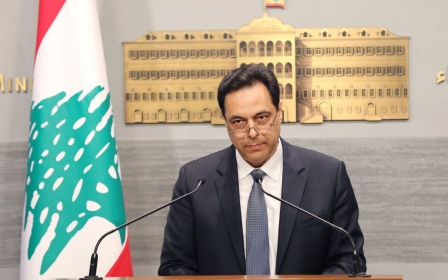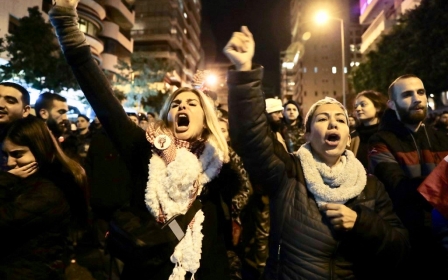Lebanon's president urges unity after night of violence
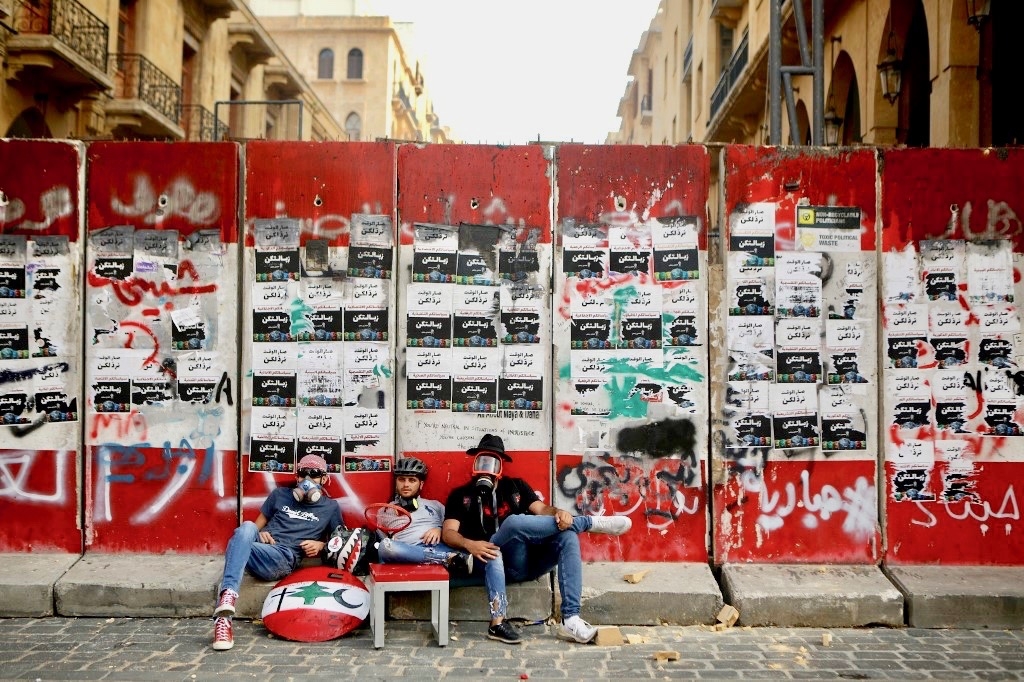
Lebanon's President Michel Aoun called for national unity on Sunday after violence erupted between supporters of rival sectarian political parties amid protests the night before in Beirut.
Lebanon maintains a fragile sectarian balance since its many sects fought a 1975-1990 civil war with factions often backed by regional rivals, according to Reuters.
New MEE newsletter: Jerusalem Dispatch
Sign up to get the latest insights and analysis on Israel-Palestine, alongside Turkey Unpacked and other MEE newsletters
Lebanese rose up last year against their political leaders, blaming them for decades of corruption and growing poverty. Lebanon now faces the biggest threat to its stability since the end of the country’s civil war in 1990.
An economic crisis, the coronavirus pandemic and national protests have raised fears of a new slide into violence, the Associated Press said.
On Saturday, security forces had fired tear gas at protesters who threw rocks, angry at the ruling elite and its handling of the economic crisis.
"Our strength remains in our national unity...What happened last night is a warning bell," Aoun's office quoted him as saying on Twitter. "We must put our political disputes aside and hurry to work together to revive our country from the depth of the successive crises."
Gunfire was heard in some Beirut neighbourhoods and suburbs on Saturday night during scuffles between supporters of rival parties, local media reported. Security forces were deployed in large numbers.
The Lebanese military on Sunday said the overnight riots and sectarian tensions in central Beirut and other areas left dozens of people injured, including 25 soldiers.
Lebanon’s army - one of the few institutions seen as a uniting force in the deeply divided country - called Saturday's clashes “a serious crisis that could have taken us into dangerous turns. What happened undermined national unity, civil peace and would have increased divisions.”
Calm was returning after a tense standoff in a Christian-Shia district linked to the start of the civil war, along a former frontline, local media said.
IMF, external donors
Meanwhile, Lebanon needs urgent international help and long-demanded reforms to shield its people from their country's worst-ever economic crunch, the International Crisis Group (ICG) said on Monday.
"Lebanon will need emergency external assistance to ward off the worst social consequences of the crisis," the Brussels-based think tank wrote in a new report.
"The economic crisis is without precedent in the country's history," the ICG said.
The government has adopted an economic recovery plan and entered talks with the International Monetary Fund (IMF), seeking to unlock billions of dollars in aid.
"Lebanon needs to urgently push ahead with the negotiations with the IMF, on which support from other sources also depends," the ICG warned.
Meanwhile, "external donors may need to step up humanitarian assistance to help those Lebanese hardest hit by the crisis", the ICG added.
Middle East Eye delivers independent and unrivalled coverage and analysis of the Middle East, North Africa and beyond. To learn more about republishing this content and the associated fees, please fill out this form. More about MEE can be found here.


